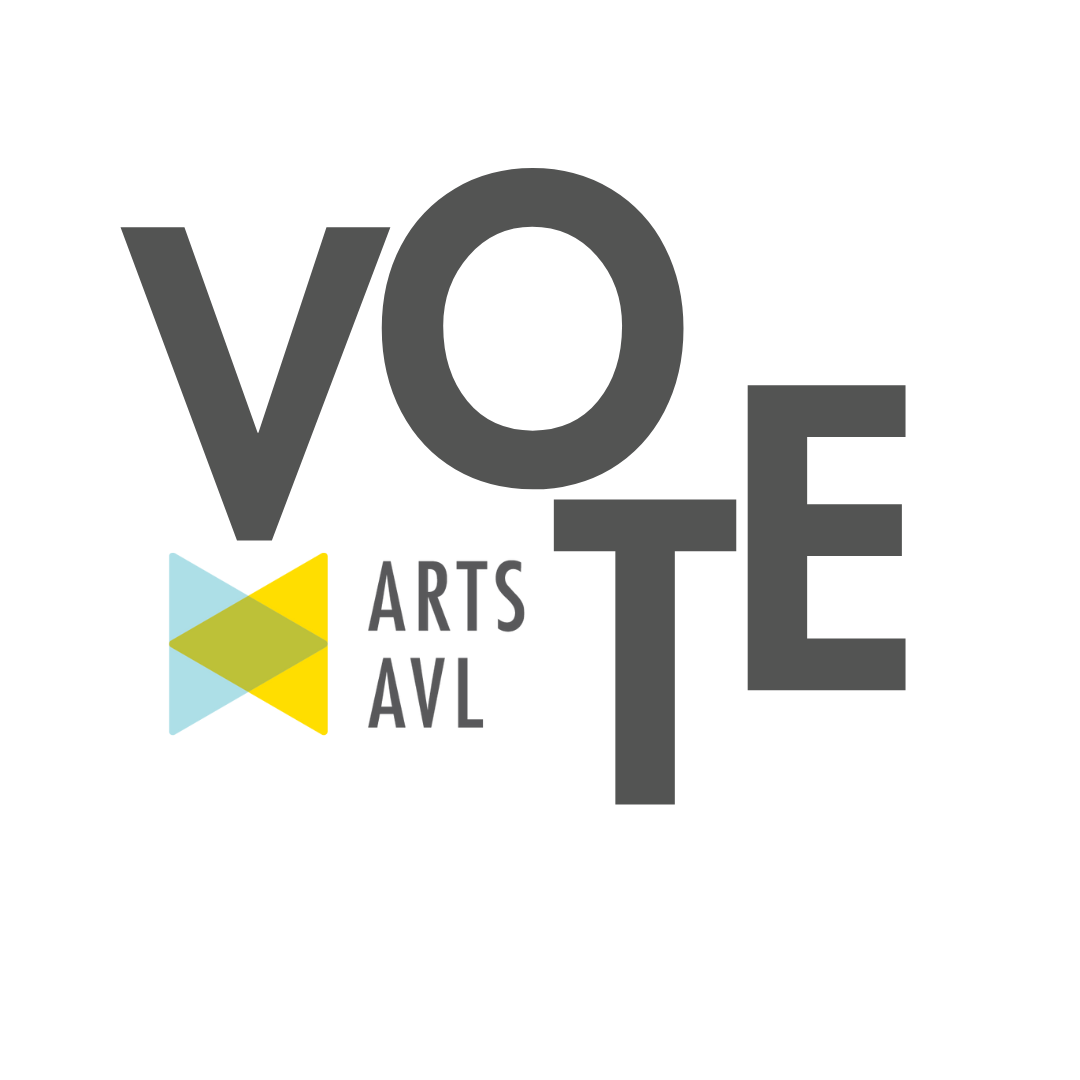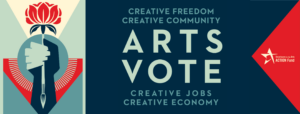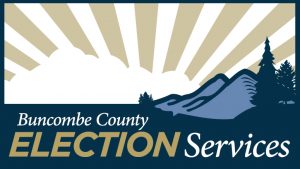2026 ELECTION
Advocacy is a core part of ArtsAVL’s mission. As Buncombe County’s nonprofit arts council, we work to ensure that arts and culture are recognized as essential to our community’s vitality, economy, and quality of life.
As part of this work, ArtsAVL helps connect voters with information about where local candidates stand on issues that impact the arts. We do this by hosting candidate surveys and candidate forum events that invite candidates to share their perspectives on public investment in arts and culture, creative workforce support, cultural infrastructure, and the role of the arts in community well-being.
ArtsAVL does not endorse candidates. Our goal is to provide accessible, nonpartisan information so voters can make informed decisions—and so arts and culture remain part of the public conversation during every election cycle.

Primary Candidates
More Info coming soon…
Incumbents in bold.
FEDERAL & STATE
US HOUSE DISTRICT 11
- Chuck Edwards (Rep)
- Zelda Briarwood (Dem)
- Jamie Ager (Dem)
- Lee Whipple (Dem)
- Paul Maddox (Dem)
- Richard Hudspeth (Dem)
- Adam R. Smith (Rep)
- Travis Groo (Libertarian)
NC SENATE DISTRICT 46
- Warren Daniel (Rep)
- Kyle Whisnant (Dem)
NC SENATE DISTRICT 49
- Julie Mayfield (Dem)
- CJ Domingo (Rep)
NC HOUSE DISTRICT 114
- Eric Ager (Dem)
NC HOUSE DISTRICT 115
- Lindsay Prather (Dem)
- Anthony J. Penland (Rep)
NC HOUSE DISTRICT 116
- Brian Turner (Dem)
BUNCOMBE COUNTY
COMMISSION DISTRICT 1
- Anna V. Stearns (Dem)
- Rob Stetson (Rep)
COMMISSION DISTRICT 2
- Terry Threadwill (Dem)
- Lonnie Israel (Dem)
- Greg Parks (Rep)
COMMISSION DISTRICT 3
- Al Whitesides (Dem)
ASHEVILLE
ASHEVILLE MAYOR
- Esther Manheimer
- Kim Roney
ASHEVILLE CITY COUNCIL
- Maggie Ullman Berthiaume
- S. Antanette Mosley
- Sheneika E. Smith
- Drew Ball
- Jeffrey Burroughs
- Scott Burroughs
- R. Blake Butler
- Tiffany DeBellott
- Dan Ferrell
- Angel Gonzales
- Nina Ireland
- Shaunda Jackson
- Tyler Ladd
- Jess Young McLean
- David Moritz
- Bobby Smith
- CJ Snyder
- Kyle Turner
- Jared Wheatley
- Keith Young
Schedule
Primary Election Countdown
Day(s)
:
Hour(s)
:
Minute(s)
:
Second(s)
PRIMARY ELECTION
Absentee Voting Begins: January 12, 2026
Voter Registration Deadline: February 6, 2026 at 5 p.m.
Deadline to Request an Absentee Ballot: February 17, 2026 at 5 p.m.
Early Voting Dates: February 12-28 2026 at 3 p.m.
Primary Election Date: November 3, 2026
General Election Countdown
Day(s)
:
Hour(s)
:
Minute(s)
:
Second(s)
GENERAL ELECTION
Absentee Voting Begins: September 4, 2026
Voter Registration Deadline: October 9, 2026
Deadline to Request an Absentee Ballot: October 20, 2026 at 5 pm
Early Voting Dates: October 15- 31, 2026
General Election Date: November 3, 2026
County Commissioner & City Council Primary Election Survey
For the primary election, candidates were asked:
To what extent do you agree with the following statement?
Local government should play an active role in supporting arts and culture because of their impact on the economy, quality of life, and community recovery.
- Strongly agree – Local government should be a proactive partner through funding, policy, and planning
- Agree – Local government should provide some support, but within limited scope
- Neutral / mixed – Local government has a role, but it should be minimal or situational
- Disagree – Arts and culture should primarily be supported by the private sector and philanthropy
- Strongly disagree – Local government should not play a role in supporting arts and culture
Please briefly explain your answer.
Check back in early February to see how the candidates respond.
Voter Resources



